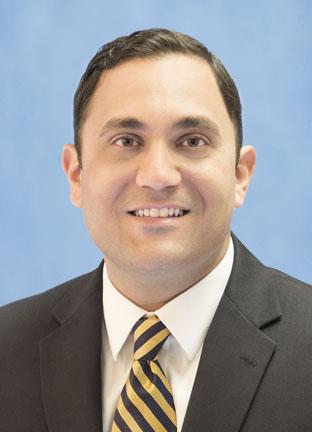The Division of Minimally Invasive Surgery specializes in the diagnosis and treatment of conditions affecting the abdomen, the abdominal wall, and the retroperitoneum. Minimally invasive surgeons also perform bariatric surgery for treatment of obesity and to repair complex and common hernias. Through our research, we’re developing novel technology-supported surgery coaching programs to share our expertise in the field, and to develop new understanding of the mechanisms of metabolism and weight loss.
Minimally invasive surgery uses emerging technologies to perform operations through small incisions, eliminating the need for a large, conventional incision. By reducing the impact that surgery causes on the body, patients experience less pain and quicker recovery, leading to better health outcomes overall. While many institutions offer minimally invasive surgical techniques, our surgeons are specially trained in this approach and can handle the most complex cases to achieve the best results.
We perform more than 1,000 minimally invasive procedures annually and are a major referral center. Our faculty are pioneers in the field of minimally invasive surgery, treating a variety of both routine and complex conditions with programs dedicated to specialized care designed to meet the individualized needs of our patients:
- Esophageal Disorders: We have extensive experience treating esophageal conditions with minimally invasive approaches, including laparoscopic fundoplication (e.g., Nissen and Toupet) for gastroesophageal reflux disease (GERD); laparoscopic repair for paraesophageal hernia; and laparoscopic Heller myotomy for achalasia.
- Gallbladder Diseases: Our team of specialized surgeons treat a wide range of gallbladder conditions, including laparoscopic cholecystectomy forsymptomatic gallstones.
- Splenic Diseases: We treat a high volume of patients with a variety of splenic diseases and have extensive experience with minimally invasive surgical techniques, such as laparoscopic splenectomy.
- Bariatric surgery: Our Adult Bariatric Surgery Program is a multidisciplinary program that performs more than 200 bariatric surgery operations each year, including laparoscopic sleeve gastrectomy, laparoscopic gastric bypass, and complex bariatric revision procedures. Our full-service program emphasizes comprehensive education and long-term support for patients, including consultation with dieticians and psychologists, to ease the transition into a new life for our patients. The Bariatric Surgery Program is recognized as a certified Center of Excellence.
- Treatment for hernias and reconstruction of the abdominal wall: We care for patients with the full spectrum of hernias, ranging from outpatient laparoscopic hernia repair to complex abdominal wall reconstruction. We treat inguinal, umbilical, epigastric, paraesophageal, and incisional hernias.


